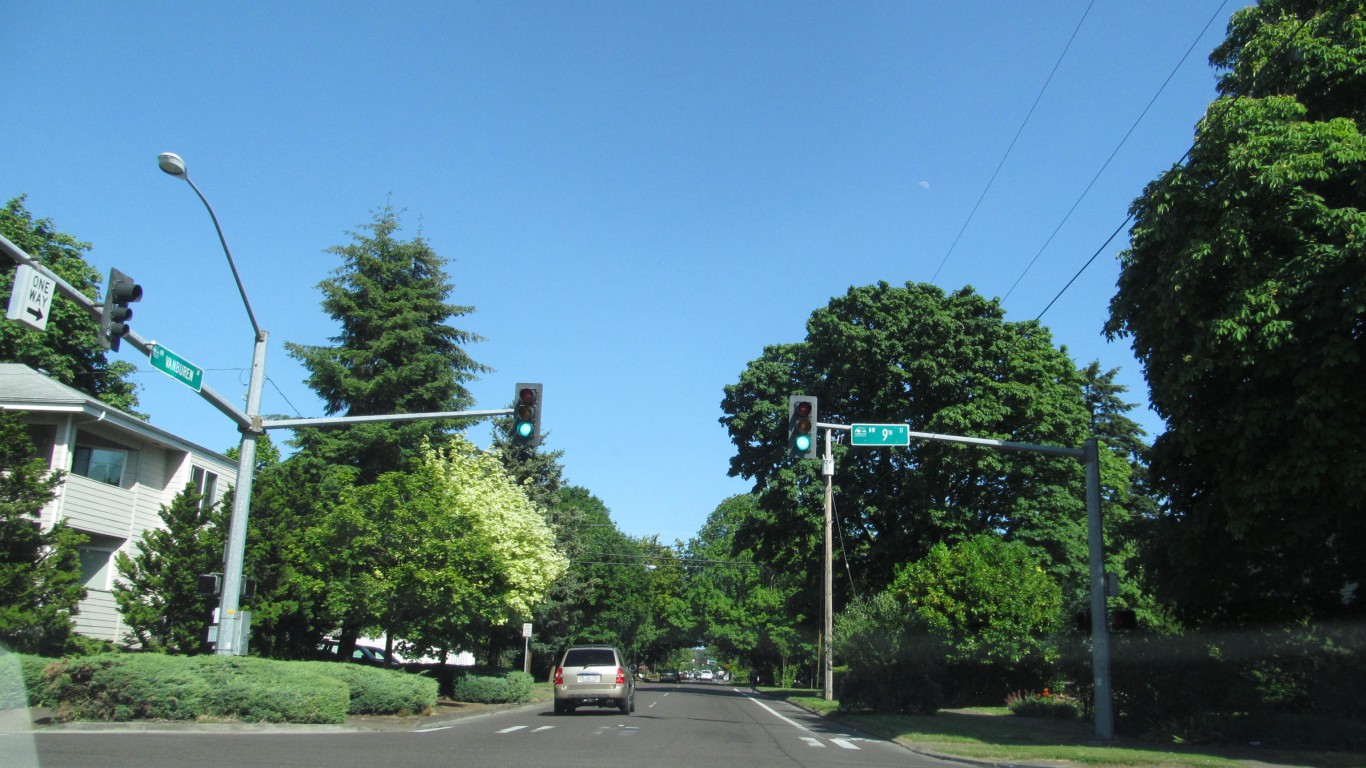Health and Healthcare
This Is the American City With the Fewest COVID-19 Cases

Published:

Despite huge spikes of COVID-19 infections in Brazil, India and several European nations, the United States remains the country with the most confirmed and fatal cases. Even with vaccinations, America is moving through a deadly fourth wave of the disease. Millions of Americans refuse to be vaccinated, despite deaths rising above 2,000 a day. The confirmed case number in the United States has passed 43 million, which is 10 million more than in India. Deaths from the disease have reached close to 700,000, which is one in every 500 Americans.
While new data shows that the risk of contracting COVID-19 is high in almost every part of the country, cities continue to be the sites of major outbreaks and superspreader events. Experts agree that the virus is more likely to spread in group settings where large numbers of people routinely have close contact with one another, such as at colleges, nursing homes, bars and restaurants. Metropolitan areas with a high degree of connectivity between different neighborhoods and a large population may be particularly at-risk.
The metropolitan areas with the lowest incidence of COVID-19 cases are distributed relatively unevenly across the United States. Of the 50 metro areas with the lowest case counts per capita, 26 are in the West, 17 are in the Northeast, five are in the South and two are in the Midwest.
The 50 cities with the lowest incidence of COVID-19 have more than 4,900 fewer coronavirus cases per capita than the country as a whole, but cases are growing at an increasing rate. There were an average of 55.1 daily new coronavirus cases per 100,000 people in the week ending September 21, an increase from the week prior, when there were an average of 46.1 daily new coronavirus cases per 100,000 people. In 46 of the 50 cities with the lowest COVID-19 incidence, new cases are rising at a slowing rate.
To determine the city with the fewest COVID-19 cases, 24/7 Wall St. compiled and reviewed data from state and local health departments. We ranked metro areas based on the number of confirmed COVID-19 cases per 100,000 residents as of September 21. To estimate the incidence of COVID-19 at the metropolitan level, we aggregated data from the county level using boundary definitions from the U.S. Census Bureau. Population data used to adjust case and death totals came from the U.S. Census Bureau’s 2019 American Community Survey and are five-year estimates.
The city with the fewest COVID-19 cases is Corvallis, Oregon. Here are the details:
Click here to see all the cities with the fewest COVID-19 cases.
Are you ahead, or behind on retirement? For families with more than $500,000 saved for retirement, finding a financial advisor who puts your interest first can be the difference, and today it’s easier than ever. SmartAsset’s free tool matches you with up to three fiduciary financial advisors who serve your area in minutes. Each advisor has been carefully vetted and must act in your best interests. Start your search now.
If you’ve saved and built a substantial nest egg for you and your family, don’t delay; get started right here and help your retirement dreams become a retirement reality.
Thank you for reading! Have some feedback for us?
Contact the 24/7 Wall St. editorial team.